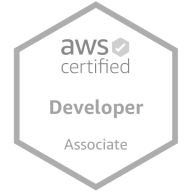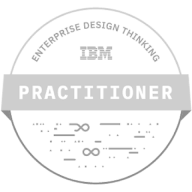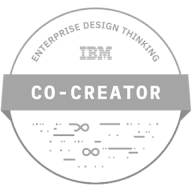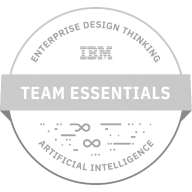
Want to know more? — Subscribe
Can building a data analytics team determine the success of your business? Absolutely. According to IBM, in the last two years, people have created more than 90% of the world's data. The development of sensors and smartphones also contributed to this, increasing the amount of structured and unstructured data. And one of the most important tasks for companies is to use it correctly to achieve their goals.
BFSI and FMCG markets increasingly focus on analytical solutions, and industrial enterprises are transforming from manufacturing facilities to intelligent organizations. With the help of data science, businesses can monitor trends, better understand consumers, evaluate the effectiveness of individual processes, forecast demand, etc. But all this is only possible with a data analytics team.
Softermii has been building efficient teams since 2014, helping clients create advanced solutions. Today, we will share our experience and expertise in creating a successful data analytics team. Also, you'll know which specialists it should consist of and which related challenges you should be ready for.
Understanding the Components of a Data Analytics Team
Creating a data and analytics team, it's essential to know its key members. Data engineer, analyst, and scientist are three fundamentally different ways of working with data. Let's discuss the development team structure related to data analytics.
Data Engineer
The Data Engineer extracts raw data from various sources (server, cloud, or application), simplifies and processes it, and then uploads it to the desired storage. This specialist prepares data for the Data Analyst and Data Scientist and helps reduce the cost of data storage.
Required skills:
- Programming (Java, Scala, SGL, Python)
- Cloud technologies (AWS, Azure, Google Cloud)
- Databases (MySQL, PostgreSQL, Oracle, MongoDB)
- ETL orchestration (Apache Airflow, Apache NiFi, Azure Data Factory)
Data Analyst
The Data Analyst reviews the data to identify key insights and create visual images showing trends, patterns, and correlations between different points. This way, the data can be converted into valuable insights for the specific company’s tasks. And to do this effectively, the analyst needs a deep understanding of the business.
Required skills:
- Programming language (SQL, R, Python)
- Data analytics (Excel, SAS)
- Data visualization (Tableau, Power BI, QlikView)
Data Scientist
The Data Scientist works at a larger level than the data analyst, improving how data is collected, processed, and analyzed. Using machine learning algorithms, the expert builds models to look for new connections and patterns and help a company solve business problems.
Required skills:
- Programming (Python, SQL, R)
- Machine learning (TensorFlow, Keras, PyTorch)
- Data analysis and manipulation (Pandas, NumPy, SQL)
- Big Data processing (Apache Spark, Dask)
Creating a Data Analytics Team: Step-by-Step Guide
Gartner claims that the lack of skilled personnel is the biggest obstacle to business transformation. And when you decide to start using data for better decision-making and client experience, finding specialists can be challenging. So let's discuss the recruiting roadmap and important steps to help you set up a data analytics team.
1. Establish Goals, Objectives, and Performance Metrics
Answer yourself the question: why do you demand this team? Maybe you don't know how to get the most out of your data or need to make better business decisions. Or you want to develop innovations by introducing AI/ML technologies.
Focusing on key performance indicators (KPIs) to correctly assess the team's work is also important. It can be data accuracy, completeness, consistency, model performance, business impact (revenue, operational efficiency, customer satisfaction), etc.
2. Define the Organizational Model
When planning to assemble the data analytics team, it is crucial to choose a suitable organizational model:
Centralized
The centralized operating model is the simplest and most accessible for implementation. Here, all data analytics decisions are in the power of a single department or team. On the one hand, it promises consistency and simplifies data management. However, this can lead to a lack of flexibility and a delay in considering and implementing initiatives.
Decentralized
With a decentralized operating model, there is no single centralized decision-maker. The company demonstrates a more collective approach to data management, strategy, and business intelligence. Thus, each unit has its own data analyst or team to solve their problems. This model ensures effective collaboration but calls into question the data consistency.
Hybrid
Is it possible to combine the best of the centralized and decentralized models? Quite that is the capability the hybrid option proposes. Just imagine: you have a central authority that sets standards and solves strategic projects and decentralized units for analysis and reporting. In this organizational structure, it is possible to balance standardization and customization.
3. Determine Team Roles
Each data analytics team has specific roles and functions regardless of the operating model.
A role is a job assigned to an employee in a particular situation. One person can have multiple roles, keeping the company flexible in times of growth or change. A function is an exclusive duty requiring special skills.
How does the team work together? For instance, a data engineer works on the backend, ensuring data accuracy and availability. A data analyst analyzes the received information and identifies interesting trends and anomalies in a visually understandable way. A data scientist may build on the analyst's vision and create ML models to predict the future.
4. Develop a Recruitment and Hiring Strategy
Companies often focus on experimentation and proof of concept (POC) in the early days of working with data. If this is your story, we recommend that you start by hiring a data engineer with analytics skills or a data analyst. You can then add more specialists, preferably one at a time.
The best way to find candidates is to use social media, including LinkedIn and Facebook, job search platforms, Bootcamp graduates, and referrals from existing employees. In the latter case, remember to offer a small financial reward for a successful match. Also, your HRs communicate with their colleagues and have access to a certain pool of talents.
To evaluate candidates, screen resumes using the Applicant Tracking System (ATS). This will save time because the platform will scan all the information and create a candidate profile, focusing on keywords. Be sure to prepare questions for the call and video interview.
In addition to the technology stack, learn about the candidate's values, motivation, the challenges they have overcome, and the projects they have been involved in. It is also important to understand exactly how a specialist measures the effectiveness of their activities and what data sets they work with.
5. Plan Training and Professional Development
With the development of AI/ML, new technologies and tools appear, changing industry certifications. Increasing the qualifications of a data engineer, analyst, or scientist is beneficial to your company and improves the motivation of specialists. Be sure to allocate a budget for specialized courses, workshops, and attending conferences.
6. Manage Team Dynamics and Communication
Effective communication helps to make better decisions and implement complex projects. Train the team to resolve conflicts quickly. To do this, you should use the "I" statement, focus on the facts, dig into the real reasons, and find a solution that considers both parties' interests.
Encourage the team to express their thoughts and suggestions — in team discussions, one-on-one meetings, and anonymously. And always be open about business performance and its tactical and strategic plans.
90% of employees believe that work-life balance makes them happier than an easy way to work or a promotion. To avoid specialist burnout, offer a flexible or hybrid schedule with remote and office work days.
Common Challenges of Building a Data and Analytics Team
To assemble the data analytics team, first, you should be ready for potential challenges.
Internal Education
Today, businesses experience a shortage of data analytics experts and, at the same time, exhaust existing employees with routine. On average, specialists spend 38% of their time on data preparation and cleaning. It is not surprising that they strongly support the improvement of the qualifications of their colleagues from other divisions to unload.
Often, companies do not have enough resources to implement corporate training programs. But you can stimulate your data analytics team to self-develop and organize small workshops for other employees.
Motivation
Team motivation is effective not only in retaining specialists but also in staff attraction. It's no secret that data processing projects can be experimental, leading to failure or running out of funding at some point. This can demotivate experts and lead to staff turnover.
Of course, you can't predict all negative scenarios, but showing the team the impact of their activities on the company's progress is quiet. Also, combine activities, balancing between bug fixes and big projects. It is effective to divide large tasks into sprints, which allows everyone to solve emerging problems flexibly.
At the same time, managers should monitor bottlenecks in work protocols and share advice on eliminating them.
Business Understanding
For the practical work of the team, it is vital that the data analytics team has a good understanding of the business specifics and offers relevant solutions. Your task is to plan the onboarding process and communication with other departments.
Closing the gap between data and its practical application is also necessary. This can be done with the help of a business analyst. To attract good specialists, offering a good salary, an adequate work schedule, and opportunities for development is necessary.
Hiring a Dedicated Data Analytics Team
The data analytics outsourcing market will reach $19.35 billion by 2030, with a CAGR of 22.1%. And this is understandable, as building data team requires time, resources, and certain skills. Isn't it better to find an experienced, dedicated team and get good business results as soon as possible? Absolutely — and here's why.
- You're not limited to talent in your region; you get access to professionals of all skill levels worldwide.
- You don't waste time recruiting, hiring, and training every necessary specialist in the data analytics team. The dedicated team immediately breaks into the processes.
- You save on the costs associated with maintaining a team, additional space in the office equipment, bonuses, and awards.
- With a dedicated team, you do not need to closely monitor the progress of the work, as its members are quite independent and have their manager. Instead, you will be able to solve urgent issues and monitor progress at a convenient frequency.
- Also, you can scale the dedicated team in any way, depending on the company's needs.
Read also: How to hire dedicated software development team
Conclusion
A data analytics team can change your company's business forever. The obtained insights will help you adjust processes, better understand the consumer, and forecast demand and trends. You already know what a data engineer, analyst, and scientist do and how to find such specialists.
However, creating a data and analytics team can take considerable effort and time. If you want qualified specialists without recruiting, onboarding, and management, consider hiring a dedicated team from Softermii. We will select employees according to your needs and guarantee a smooth workflow. Contact us to discuss your project.
Frequently Asked Questions
What skills should my data analytics team have?
It's the process of developing a custom mobile app for realtors that aims at simplifyingand improving the industry and realtor experience. For example, an app for realtors will enablethem to close more deals, help manage multiple properties online in real time, and empowerbuyers to easily choose the apartment and close deals electronically on an Airbnb-like app.
Is it better to hire an in-house or a dedicated team?
A dedicated team is a more convenient, cost-effective, and quick way to find the necessary professionals. Considering this option from Softermii, you avoid recruitment, hiring, and management hassles. At the same time, you can choose appropriate specialists based on their skills, regardless of their location.
How can I determine the optimal team size for my data analytics projects?
Your team size depends on project requirements, complexity, and desired timeline. In most cases, it is not necessary to hire a large number of professionals at the same time, and it is better to focus on data engineers and analysts. Contact Softermii to define your talent needs.
How can I leverage tools and technologies to enhance the productivity and efficiency of my data analytics team?
To manage projects more efficiently and enhance collaboration, you can use management software like Jira, Trello, Asana, etc. Also, you should find a way to automate repetitive processes and educate employees to store data in the correct format and place.
How about to rate this article?
84 ratings • Avg 4.5 / 5
Written by:


























